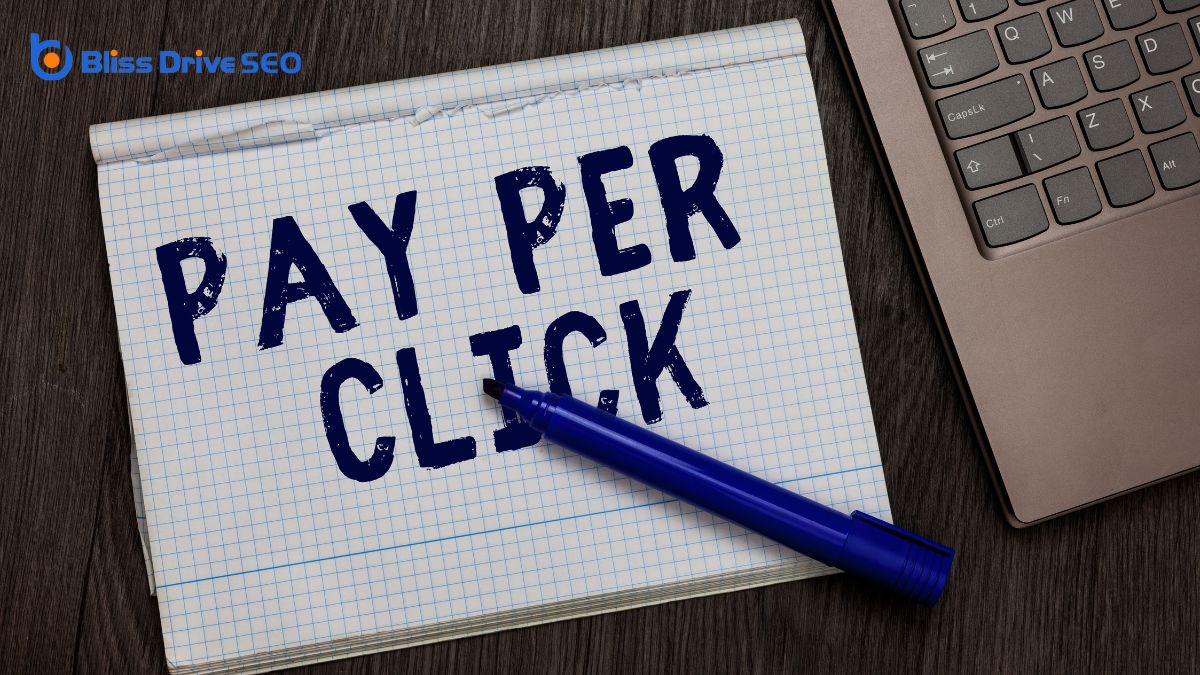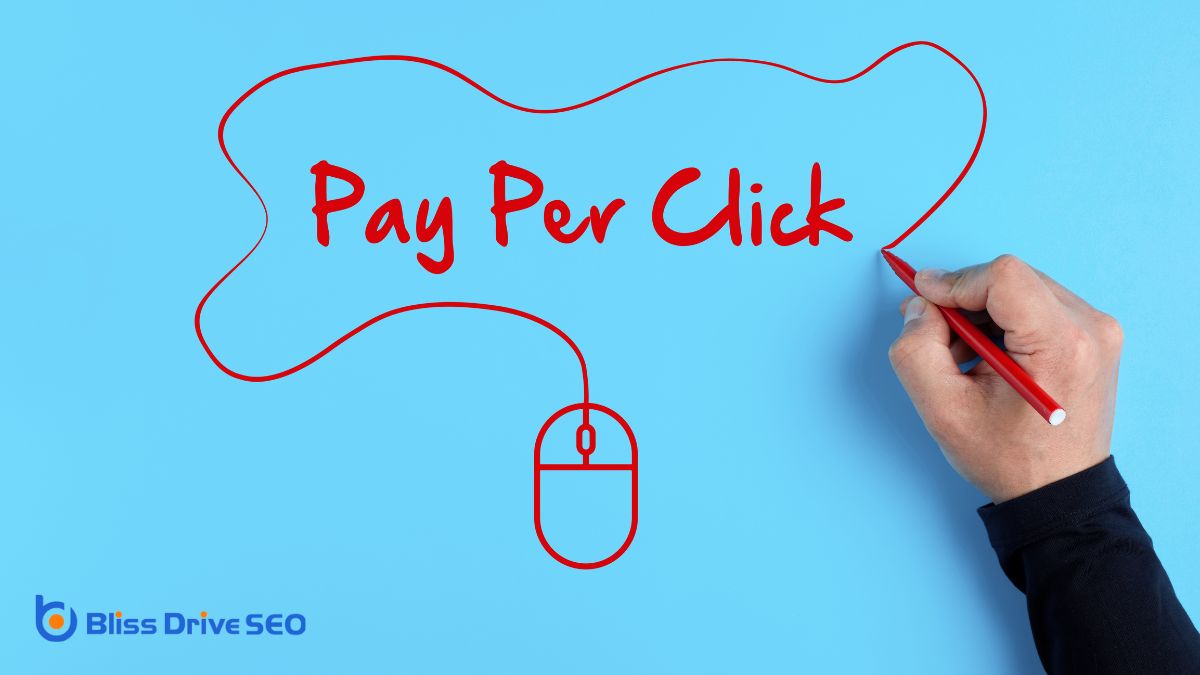Digital Marketing Services
Learn More About Us

To create a PPC plan, start by defining your specific goals, like boosting traffic or generating leads. Conduct thorough keyword researchThe process of finding and analyzing search terms that people enter into search engines. using tools like Google Keyword Planner. Understand your target audience's demographics and behaviors. Develop compelling ad copyThe text or content of an advertisement. that highlights your unique value. Set a realistic budget and implement effective bidding strategies. Regularly monitor and optimize your campaignA set of ad groups sharing a budget, targeting options, and other settings. performance. If you stick around, you'll discover strategies for refining your PPC approach.

Defining your PPC goals is the essential foundation of any successful campaign. You need to start by clearly identifying what you want to achieve. Are you aiming to increase website traffic, generate more leads, or boost sales? Each goal requires a different approach, so it's vital to be specific.
Consider setting SMART goals—Specific, Measurable, Achievable, Relevant, and Time-bound. For example, instead of merely wanting more visitors, aim for a 20% increase in website traffic over three months. This clarity helps you measure success and adjust your strategy as needed.
Being precise about your goals allows you to allocate your budget effectively and choose the right metrics to track. Remember, well-defined goals guide your entire PPC strategy toward tangible results.
Before diving into your PPC campaign, conducting thorough keyword research is essential for targeting the right audience and maximizing your return on investment.
Begin by brainstorming a list of terms related to your product or service. Think about what potential customers might type into a search engine. Use keyword research tools like Google Keyword Planner or SEMrush to expand your list and discover search volume data.
Identify long-tail keywordsLonger, more specific keyword phrases that are less competitive and often more targeted.—phrases with three or more words—that can bring more targeted traffic. Don't forget to check out your competitors. Analyze the keywords they're using, but make certain yours reflects your unique offerings.
Regularly update your keyword list to stay relevant and maintain a competitive edge. This diligent research lays the foundation for a successful PPC strategy.
How well do you know your target audience? Understanding them is essential for a successful PPC plan. Start by identifying their demographics, interests, and online behaviors. Who are they? What challenges do they face, and how can your product or service solve them? By answering these questions, you'll tailor your ads to meet their needs more effectively.
Here's a simple breakdown:
| Aspect | Details |
|---|---|
| Demographics | Age, gender, income, education |
| Interests | Hobbies, favorite websites, social media |
| Online Behaviors | Search habits, purchase history |
These insights help you create targeted advertisements that resonate. When you know your audience thoroughly, you can anticipate their needs and craft a PPC strategy that truly connects. This understanding is foundational for achieving better results and maximizing your campaign's ROI.
To develop compelling ad copy, start by crafting engaging headlines that grab attention and entice clicks.
Highlight your unique value to show potential customers why your offering stands out from the competition.
Keep your message clear and focused to guarantee it resonates with your target audience.
Why do some headlines grab your attention while others fall flat? It's all about crafting a message that piques curiosity and resonates with your audience. A compelling headline can be the difference between a click and a scroll past.
To make your headlines engaging, focus on clarity and relevance. Use words that evoke emotion or urgency. Keep it short and straightforward, ensuring it aligns with what your audience is searching for.
Here are some tips to create attention-grabbing headlines:
Even though the digital landscape is crowded, your ad copy needs to stand out by highlighting your unique value proposition. Ask yourself, what makes your product or service different from the competition? Is it the quality, price, or exclusive features? Clearly articulate this in your ad copy to grab attention.
Use concise language that directly addresses your audience's needs and pain points. Don't just list features; explain the benefits they'll gain.
For example, instead of saying "fast delivery," try "get it tomorrow, guaranteed." This paints a vivid picture and sets expectations.
Crafting a realistic budget is an essential step in developing an effective PPC plan. You need to determine how much you're willing to spend and guarantee it aligns with your goals.
Start by analyzing your financial capacity and setting a budget that won't strain your resources. Remember, the budget should reflect the scale of your campaign and the competitiveness of your market.
Consider these key points when setting your budget:
To make the most of your PPC plan, start by optimizing bid adjustments to match your audience's behavior.
Leverage automated bidding to save time and improve performance, letting algorithms make smart decisions for you.
Also, keep an eye on competitor bids to guarantee you're not missing out on valuable opportunities.
A crucial aspect of any PPC plan is optimizing bid adjustments to guarantee your budget is spent efficiently.
You need to adapt your bids based on performance data and audience insights. By doing so, you can ascertain your ads show up at the right times and places for the right people.
Here are some key considerations:
While manual bidding gives you control, leveraging automated bidding can greatly enhance your PPC strategy.
Automated bidding uses algorithms to optimize your bids in real time, guaranteeing you're competitive without constantly monitoring your campaigns. It saves time and reduces guesswork by adjusting your bids based on performance data and user behavior.
Choose the right automated strategy that aligns with your goals. For instance, if you want more clicks, consider a strategy like "Maximize Clicks." If conversions are your focus, "Target CPA" might be more suitable.
AutomationUsing software to send emails automatically based on predefined triggers and schedules. can help you reach your desired outcomes more efficiently.
To get the best results, verify your conversion trackingThe process of monitoring and measuring actions taken by users after clicking on an ad. is set up correctly and continuously monitor performance to make necessary adjustments.
Implementing automated bidding can boost your campaign's success.
Understanding your competitors' bidding strategies is essential for crafting an effective PPC plan. By analyzing what others are doing, you can uncover opportunities to refine your own bids and gain a competitive edge.
Start by identifying your main competitors in the PPC landscape. Use tools like Google Ads Auction InsightsA report showing how ads compare with competitors' ads in Google Ads auctions. or SEMrush to gather data on their bid amounts and keywords.
Here's what you should focus on:

To truly maximize the effectiveness of your PPC campaigns, it's crucial to monitor and optimize their performance continuously. Start by regularly checking key metrics like click-through rates, conversion rates, and cost per acquisition. This data helps you identify trends and make informed decisions.
Use A/B testingA method of comparing two versions of a web page or app against each other to determine which one pe... to compare different ad variations and determine which performs best. Pay attention to underperforming keywords and adjust them or pause them to save budget.
Don't forget to analyze the performance of your landing pages, ensuring they align with your ads and provide a smooth user experience. Utilize tools like Google Ads' built-in analytics to gain insights and act on them promptly.
In wrapping up your PPC plan, remember that clarity and precision are your best allies. You've set clear goals, chosen the right keywords, and crafted compelling ad copy. By understanding your audience and setting a realistic budget, you're well on your way to success. Don't forget to implement smart biddingA set of automated bid strategies that use machine learning to optimize for conversions or conversio... strategies and continually monitor your campaign's performance. Regular optimization guarantees you're always improving. With these steps, you'll maximize your return on investment and achieve your marketing goals.
